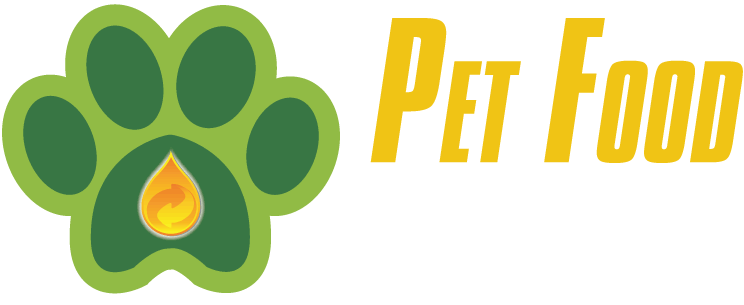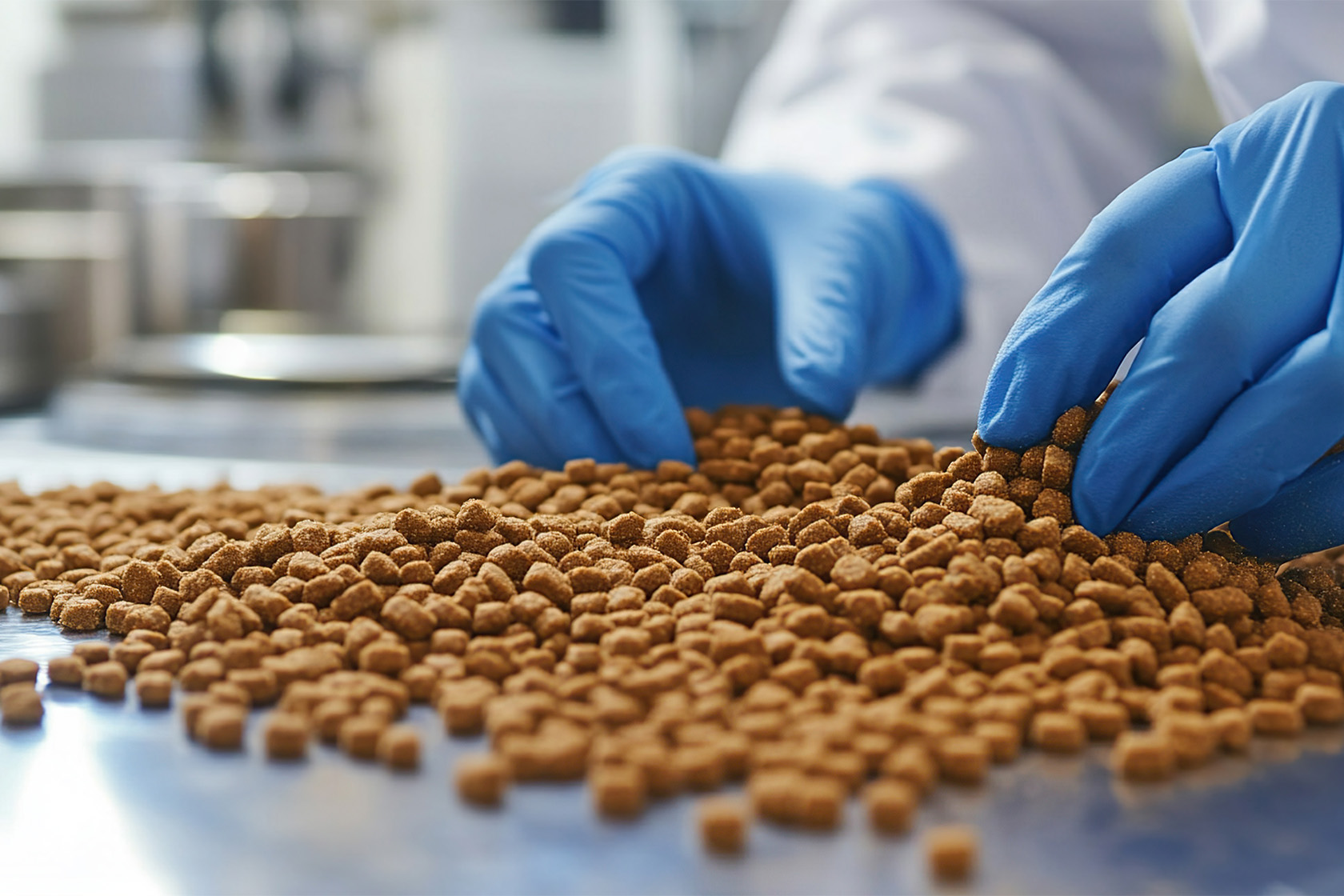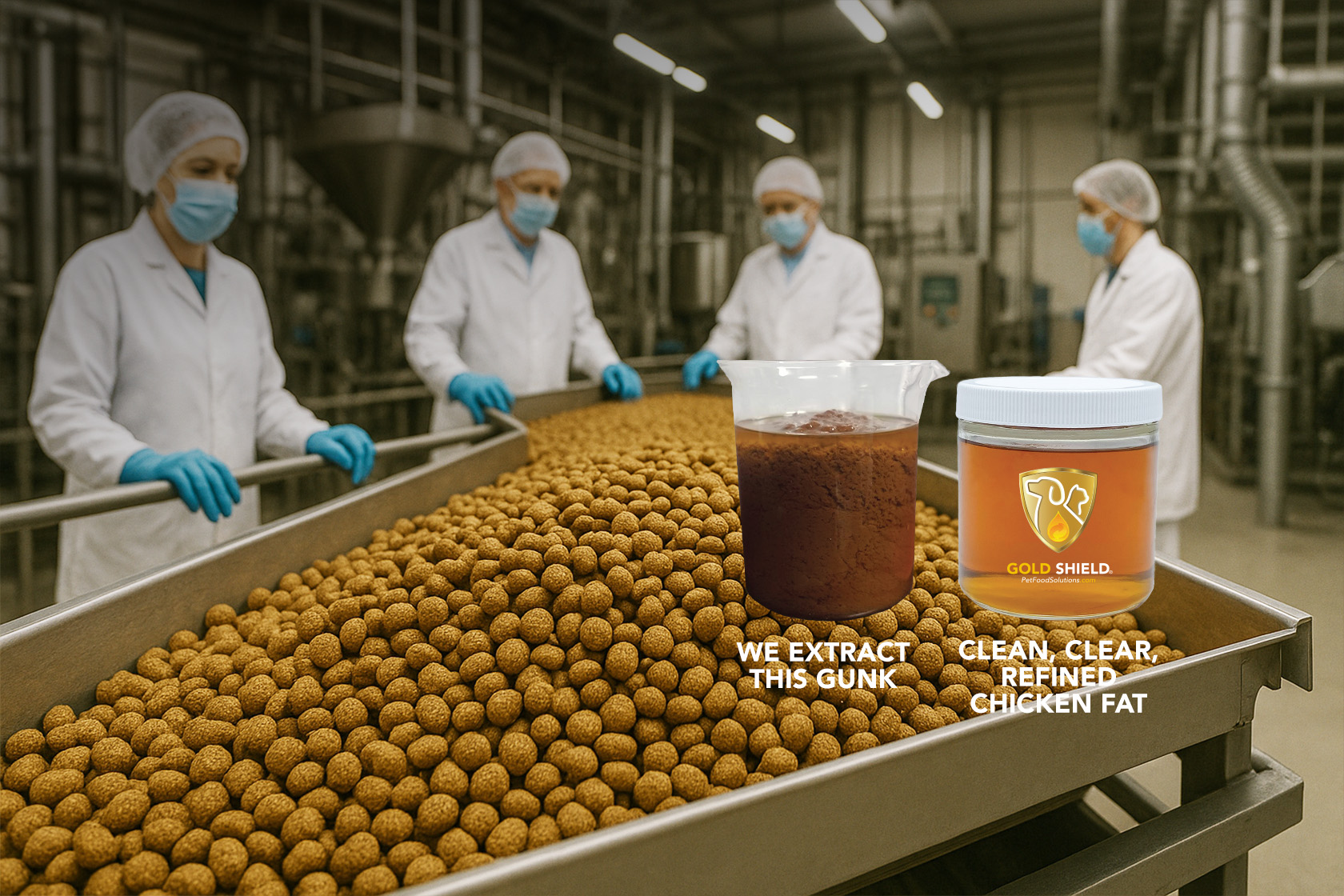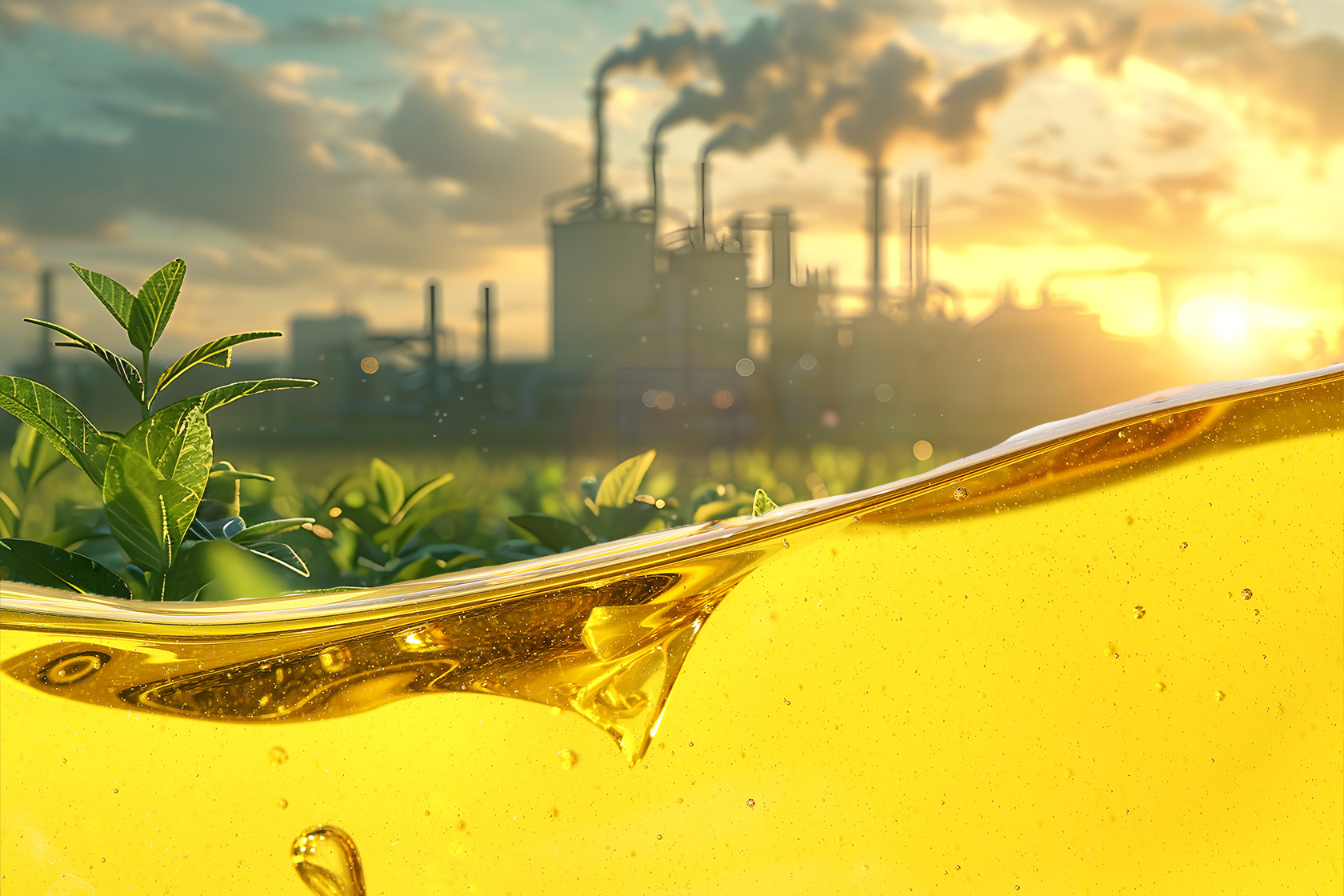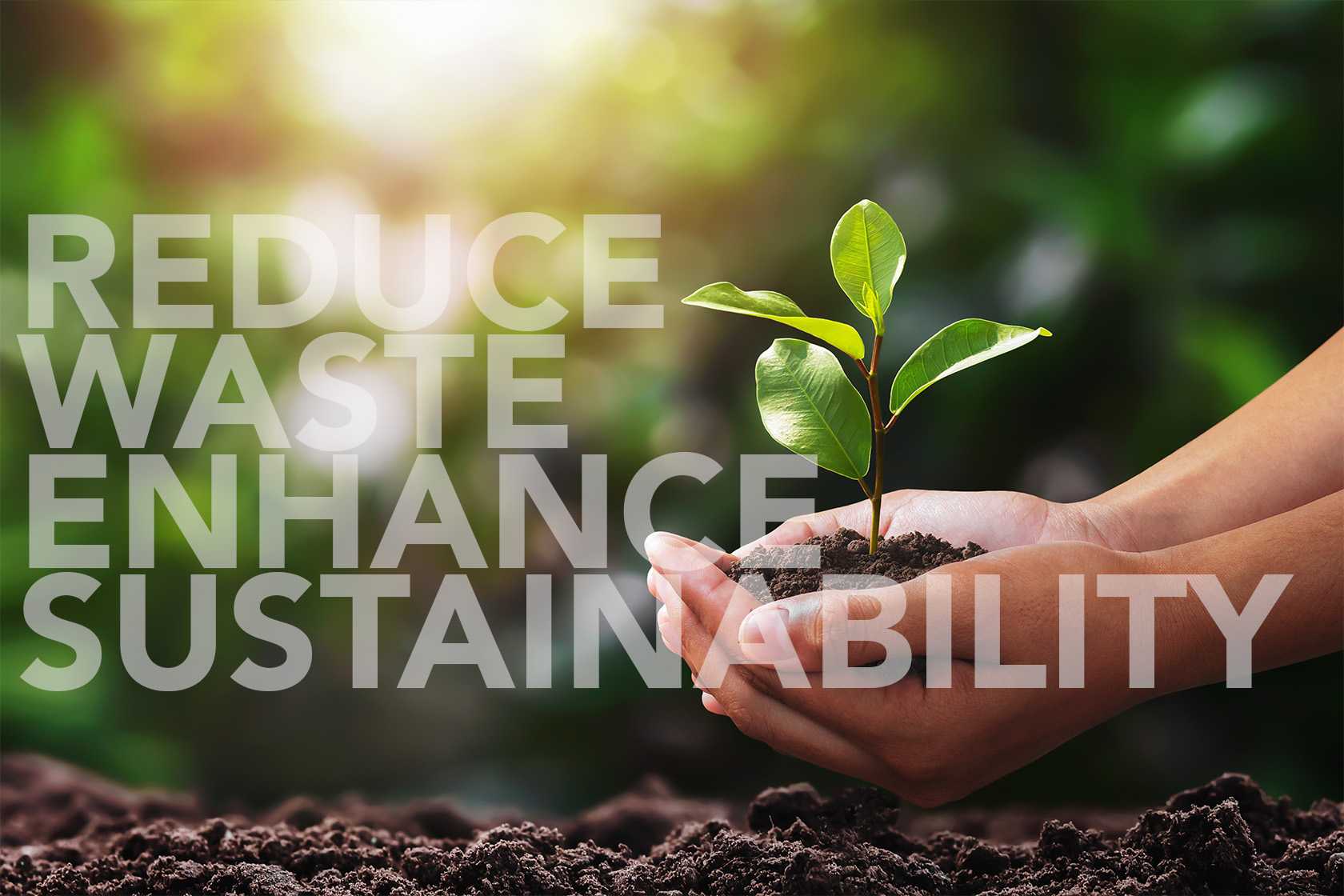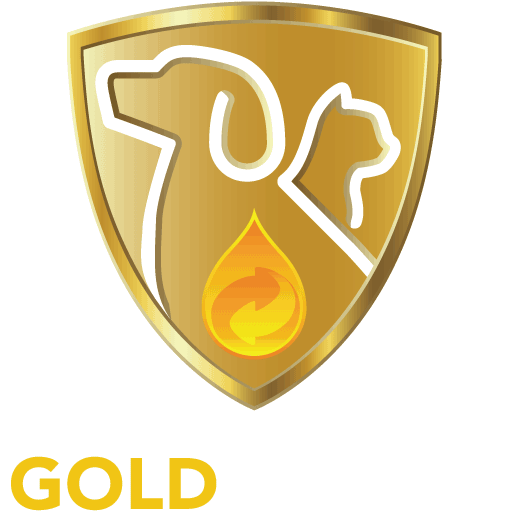Salmonella contamination is a serious concern for all pet food manufacturers. It creates a safety risk for customers, and the employees in the facilities where it’s made. It is such a serious concern that the FDA has implemented a zero-tolerance policy for pet food and treats, and regulators are closely monitoring this. So much so, that Salmonella contamination led to several pet food recalls in recent years. This includes serious recalls that took place in late 2023, one of which led to a class action lawsuit.
How Standard Chicken Fat Can Lead to Salmonella Contamination
Standard chicken fat is a common ingredient in pet food and is often the culprit when it comes to Salmonella contamination. That is because the chicken fat is typically added as a coating to the pet food kibble after the high temperature kill step in the extrusion process. If the chicken fat is contaminated with Salmonella, the food itself may also be contaminated.
There has been a long-held belief that poultry products like chicken fat can be contaminated with Salmonella. It is also known that if additional water is present, Salmonella may survive and grow. Considering the manufacturing process, and the amount of water present, it is clear that Salmonella can exist. Furthermore, key nutrients that exist in standard chicken fat, such as essential metals and organic materials, can be easily metabolized by Salmonella paving the way for its rapid growth and the possibility of it spreading throughout a manufacturing facility.
This puts the public – and your brand – at risk. Just one recall due to contamination is costly and damages the reputation of your pet food. The FDA estimates that the cost of a recall can be in the tens of millions of dollars. The good news is that there is a way to significantly reduce this risk.
Gold Shield® Refined Chicken Fat and the Reduction of Salmonella Risk
The scientists at Pet Food Solutions took on the task of developing a solution to eliminate the growth of Salmonella in refined chicken fat and reduce the risk of contamination of pet food. This process involves removing the non-fat components in standard chicken fat, which in turn, removes the nutrients necessary for Salmonella growth. Extracting these materials results in the creation of Gold Shield® Refined Chicken fat, a product that is now in use by many of the top pet food manufacturers in the United States to ensure quality and safety of their brands.
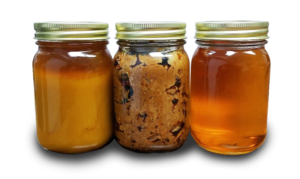 We often say that “the difference is clear,” a statement that is on full display when you look at the photo of the material we start with (the standard chicken fat, at left), the gunk that we extract (middle) and the clean, clear jar of Gold Shield® Refined Chicken Fat. The result is a product that is bacteriostatic to Salmonella contamination. Even if water is present, Salmonella is unable to grow in Gold Shield® Refined Chicken fat.
We often say that “the difference is clear,” a statement that is on full display when you look at the photo of the material we start with (the standard chicken fat, at left), the gunk that we extract (middle) and the clean, clear jar of Gold Shield® Refined Chicken Fat. The result is a product that is bacteriostatic to Salmonella contamination. Even if water is present, Salmonella is unable to grow in Gold Shield® Refined Chicken fat.
Our latest white paper is packed with data demonstrating the tests that have been performed to show the growth of Salmonella in standard chicken fat versus Gold Shield® Refined Chicken Fat. We’ve also included important data on risks such as toxic metals, as well as analysis of various nutrients and product stability.
Do Better for Your Brand with Gold Shield® Refined Chicken Fat
We invite you to learn more about the many benefits of Gold Shield® Refined Chicken Fat. While Salmonella contamination is certainly a key concern for the reasons we have outlined in this article, we know that pet food manufacturers face other challenges in the production process that we can address, from operational efficiency to precision in formulation of pet food diets and overall value, among others. Our website provides an overview for your convenience, and we welcome an opportunity to discuss your specific situation and how we can help. Reach out today!
